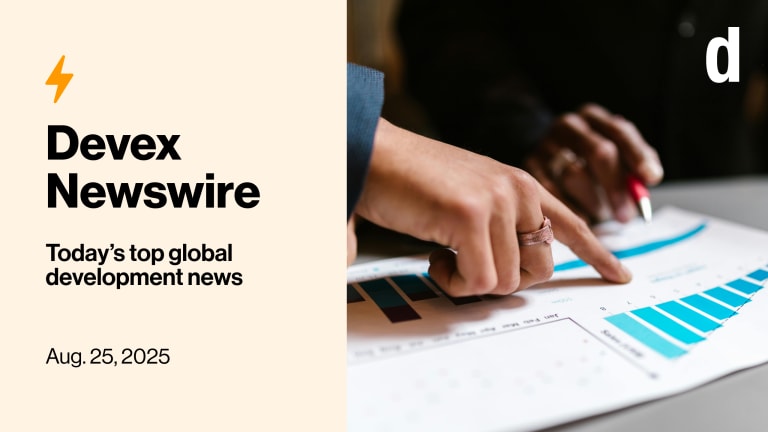
Earlier this month, as news emerged about a Brexit deal and eyes and ears were firmly focused on the future of the United Kingdom government, the second annual report of the Prosperity Fund was released.
Given the increased focus on how the U.K.’s aid budget is being spent, this was an important opportunity to find out more about how the £1.2 billion ($1.54 billion) cross-government fund is being used, and critically whether the Prosperity Fund is getting any closer to meeting the Secretary of State for International Development Penny Mordaunt’s pledge to achieve value for money and to ensure that taxpayers money is not only spent well, but “cannot be better spent.”
The now 2-year-old Prosperity Fund was created to “raise welfare and prosperity in emerging economies through economic growth,” according to the government, flagging a strategic shift toward closer links between trade, investment, and alleviating global poverty. The fund, which mixes official development assistance with non-ODA funds, spends almost £60 million of U.K. ODA each year on a five-year budget. Currently, 65 percent of its budget is spent by the Foreign & Commonwealth Office, a department rated “poor” by the 2018 Aid Transparency index.
This year, the fund was again criticized by the International Development Committee for its “inadequate, or negligible, targeting at improving the lives of the very poorest and most vulnerable communities.” IDC also highlighted deep-seated concerns around the fund’s transparency.
The Prosperity Fund’s annual report makes repeated assurances of significant progress on the transparency recommendations made by the Independent Commission for Aid Impact. It is “working to publish more program information” and support departments that spend its money to achieve a rating of “good” from the International Aid Transparency index, it states. However, frustratingly, there is still no clear progress in establishing a standardized format by which departments should publish their program business cases and evaluations.
UK Foreign Office among least transparent aid donors globally, study finds
The latest edition of Publish What You Fund's Aid Transparency index ranks the U.K. Foreign & Commonwealth Office 40th out of 45 aid donors in terms of transparency.
Other government departments and cross-department funds are still struggling to meet the same levels of consistency and transparency as the Department for International Development in reporting where ODA is spent. That means the Prosperity Fund is not undergoing the same level of scrutiny or showing the same level of accountability as DFID.
The lack of transparency also makes it difficult for the fund to demonstrate what type of activities truly meet its dual objectives of reducing poverty — which the fund is compelled to meet under the International Development Act 2002 — and promoting prosperity by developing programs that benefit the U.K. in trade and investment relationships.
Much has been claimed about how the fund is achieving both. But without clear and robust evidence about how many people living in poverty in middle-income countries are being reached, it is very difficult to demonstrate yet that the fund is completely fit for purpose.
It is also unclear whether the fund is able to invest the amount of money it is receiving under the government’s 2015 pledge to spend 30 percent of ODA through departments other than DFID by 2030. According to the annual report, the Prosperity Fund only used a third of its allocated budget, causing the forecasting to be reduced. This raises a concern about how effectively the fund is developing programs that can meet its aims, and whether there is a real need, or even political appetite, for aid funding in the form of the Prosperity Fund.
In addition, the annual report contains little information as to how it will help toward the 2030 Sustainable Development Agenda, as well as how the fund’s programs meet those specific commitments.
The Prosperity Fund has the potential in its cross-government approach to tackle poverty while exploring the benefits of economic growth that reaches the most vulnerable first. But it needs to work much harder to demonstrate that it is mitigating the potentially damaging impact of its programs, which prioritize economic growth over those most in need — particularly in regard to environmental issues.
Civil society has been active on this since the beginning of the Prosperity Fund in April 2016. However, there is a growing consensus that tensions between prosperity and sustainable development — which is good for both people and planet — is preventing it from genuinely having a pro-poor agenda.
This focus is critical to ensuring that it meets the secretary of state’s pledge to show British taxpayers that “their money cannot be better spent.”








